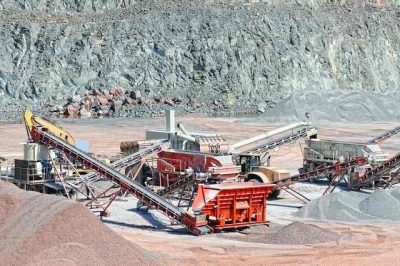Merger of Major Companies Ensures Chinese Dominance over the Rare Earth Industry

All Global Research articles can be read in 51 languages by activating the “Translate Website” drop down menu on the top banner of our home page (Desktop version).
To receive Global Research’s Daily Newsletter (selected articles), click here.
Visit and follow us on Instagram at @crg_globalresearch.
***
China’s State Assets Management and Supervision Commission has approved the merger of three major companies operating in the rare earth mining sector. As such, the new super-enterprise includes three of the world’s six largest rare earth producers, and keeping in mind that China controls about 80% of the global rare earth supply, these mergers will secure the Asian country’s dominance in the industry. In fact, state media described the China Rare Earth Group as an “aircraft carrier” due to its size and industrial might. They also noted that the China Rare Earth Group will control over 70% of the country’s rare earths output.
The new group will be formed under the merger of China Minmetals Rare Earth Co, Chinalco Rare Earth & Metals Co and China Southern Rare Earth Group Co. According to media reports, the newly formed company will mine rare earths in China’s south. The State Assets Management and Supervision Commission will own 31.21% of the total shares of the new group. Each of the three group members will receive a 20.33% stake.
Rare earth metals, as the name suggests, are critical in almost every modern electronic device, from the standard smartphone to the most advanced military equipment. Although China has huge reserves of rare earths, about 36 million tons, or a third of the world’s reserves, extracting rare earths is extremely difficult.
China’s main competitive advantage today is the establishment of an integrated technology process of metal ores. The US was once the main supplier of these products, but since rare earth mining and processing is difficult from a safety point of view and is associated with environmental risks, the US phased out the industry gradually. Due to this, about 80% of US imports of rare earths now comes from China.
As relations with Beijing deteriorate, Washington has repeatedly spoken out about the need to create independent supply chains that bypass China. However, as the US completely abandoned the industry, it is almost impossible for them to challenge China anytime soon. None-the-less, in the context of globalization and the international division of labour, relying on suppliers with a competitive advantage often brings much greater efficiency.
Western experts note that China is creating a giant corporation and is merging rare earth producers for tighter controls on rare earth prices. Meanwhile, because the new group is mainly focused on primary production, management will be able to strengthen control over compliance with environmental standards. The distribution market is much harder to control, and as small companies that also exploit rare earths have fewer opportunities, their operations can harm the environment due to cost cutting measures.
It should also be understood that the combined companies in the new group specialize in heavy group rare earth mining. At the same time, outside of China, investments in the US, Australia and the UK focus mainly on light group rare earths. With the Anglo countries focusing on light group rare earths, China will continue to play a key role in the supply of heavy group rare earths.
On the one hand, the global economy and industry are recovering from the crisis caused by the COVID-19 pandemic. Accordingly, the demand for rare earth metals is increasing – in the past year, the price of dysprosium and terbium has increased by about 60% and 90% respectively compared to a year ago. On the other hand, political instability in Myanmar, the second-largest supplier of rare earths, is forcing China to shoulder the responsibility of meeting global rare earth demand.
Contrary to the concerns of Washington and some other Western countries, for Beijing, it is important to show that it is a responsible party in the global supply chain. Under the five-year plan, starting in 2020, China increased its annual rare earth mining quota to 140,000 tons, and this year increased it by 20%.
Enigmatic former leader of China, Deng Xiaoping, previously said that “The Middle East has oil and China has rare earths.” In this way, China has certainly positioned itself to dominate the industry, and the latest merger between major Chinese companies will ensure that this status quo will remain this way for the foreseeable future.
*
Note to readers: Please click the share buttons above or below. Follow us on Instagram, @crg_globalresearch. Forward this article to your email lists. Crosspost on your blog site, internet forums. etc.
Paul Antonopoulos is an independent geopolitical analyst.
Featured image is from asiafinancial.com

